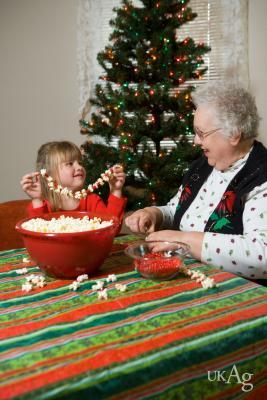 During the holiday season, many families with young children will be travelling to visit grandparents or aunts and uncles. If you are a grandparent or aunt or uncle, is your house safe for young children? Here are some ideas to help you childproof your home:
During the holiday season, many families with young children will be travelling to visit grandparents or aunts and uncles. If you are a grandparent or aunt or uncle, is your house safe for young children? Here are some ideas to help you childproof your home:
- Think about the chemicals that children could reach, like cleaning products under the kitchen sink. Move them to a safer location or buy some inexpensive child safety latches to use on doors.
- Keep pot handles turned toward the back of the stove, out of the reach of children. Kitchen appliances, knives, and other harmful items should be moved out of reach of young hands. The same is true in the bathroom.
- Purchase and install inexpensive outlet covers to keep little fingers out of electrical outlets.
- If toddlers or crawling babies are visiting and you have steps they can fall down, borrow or buy a safety gate and block the steps.
- Make sure window blinds do not have long, looped cords in which children can become engtangled. Look for unsteady shelves or furniture that children might try to climb and tip over.
- Check floors and low tables for small objects like coins, marbles, paper clips, etc., that young children might put into their mouths and choke on.
- You might consider locking some doors to limit children's access to certain rooms. You can also buy simple door knob covers that children cannot turn but adults can.
- If you have balconies or low screened windows that children can fall through, block access to them or keep them closed.
- If you have sharp-edged furniture that toddlers can fall against, guard the edges or remove the furniture during the visit.
- If you are supervising young children while their parents are out of the house or are taking the children shopping, remember that children can move and get into trouble a lot faster than you think. Keep an eye on them at all times.
The holidays are a great time for family get-togethers with multiple generations. Take action to keep the youngest members of the family from getting hurt and turning a happy time into a tragedy.
Source: Mark Purschwitz, Extension Specialist for Safety and Health, University of Kentucky, College of Agriculture
